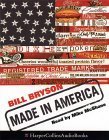
The Lost Continent: Travels in Small-Town America
Book Description
Discover the hidden gems and quirky oddities of the American heartland in "The Lost Continent: Travels in Small-Town America." With razor-sharp wit and an eye for the absurd, Bill Bryson embarks on a rollicking road trip through forgotten towns and roadside attractions, painting a vivid portrait of small-town life. Each stop reveals a tapestry of eccentric characters and unexpected adventures, lifting the curtain on a world both enchanting and baffling. As nostalgia collides with reality, what secrets lie beneath the surface of these idyllic landscapes? Are they treasures waiting to be uncovered, or just echoes of a vanished past?
Quick Book Summary
"The Lost Continent: Travels in Small-Town America" captures Bill Bryson's witty and nostalgic journey across the backroads of the United States. Driven by memories of his Iowa upbringing and the desire to rediscover 'real America,' Bryson embarks on a road trip through overlooked towns and forgotten landscapes. With humorous observations and candid reflections, he contrasts the myth of idyllic small-town life with the sometimes harsh and eccentric reality of rural America. Along his route, Bryson encounters oddball residents, bizarre roadside attractions, and poignant remnants of an America in transition. The book offers a heartfelt yet sharply critical portrait of the country's heartland, inviting readers to ponder what has been lost and what remains vibrant in the fabric of American small-town culture.
Summary of Key Ideas
Table of Contents
Nostalgia Versus Reality in American Small Towns
Bryson sets out on his quest to find the America he remembers from his youth. Inspired by childhood road trips with his family and influenced by his father's idiosyncratic travel plans, Bryson sets off in his modest Chevrolet, determined to avoid interstates and major cities. His journey is a search for authenticity, propelled as much by nostalgia for a simpler past as by a desire to uncover the quirks of everyday American life. As he zigzags through the country, he visits lesser-known towns and observes the differences between the myth of small-town America and the sometimes disappointing reality.
Roadside Eccentricities and Americana
Throughout his travels, Bryson delights in the strange and whimsical roadside attractions that dot the American landscape: oddball museums, peculiar monuments, and decaying diners. His encounters with these idiosyncratic sites serve as both comic relief and affectionate commentary on the nation's propensity for eccentricity. Bryson relishes the kitsch and absurdity, while also acknowledging how such attractions form a neglected but distinct part of American heritage.
Contrast Between Urban and Rural America
Bryson frequently contrasts rural America with its urban counterparts. He notes the socio-economic challenges facing many small towns—economic decline, cultural stagnation, and dwindling populations—juxtaposed with the bustling, often impersonal nature of American cities. Through these comparisons, he subtly critiques the romanticization of small-town life commonly found in American popular culture, while also expressing empathy for communities struggling to find their footing in a changing world.
Irreverent Humor and Cultural Critique
A signature feature of the book is Bryson’s sharp, self-deprecating humor and keen eye for the absurd. His witty observations lighten even his more poignant reflections, making the narrative both entertaining and incisive. Bryson’s humor is often pointed, sometimes irreverent, and invariably honest. He does not shy away from poking fun at himself or the myriad of rural oddities he discovers, yet his tone remains affectionate rather than mean-spirited, striking a balance between comedy and critique.
Personal Reflections on Belonging and Home
Underlying Bryson's observations is a deeper meditation on belonging and the idea of home. As an American who lived abroad for many years, Bryson views the heartland both as an insider and a detached observer. His encounters evoke both disappointment and affection, underscoring the complexities of national and personal identity. Ultimately, "The Lost Continent" suggests that the search for an idealized America is as much about reconciling memory and change as it is about geography, offering readers a bittersweet, insightful portrait of a vanished—and still vibrant—way of life.
Download This Summary
Get a free PDF of this summary instantly — no email required.





